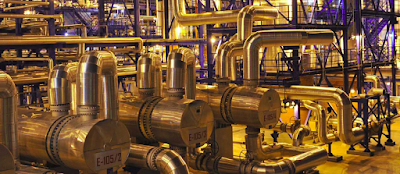The Role Of Desalters In Crude Oil Refineries
Crude oil is considered among the essential fuel resources used historically and globally. Experts suggest that global demand for crude oil is projected to increase to 96.5 million barrels per day in 2022 compared to 86.4 million barrels in 2010.
These petroleum products include gasoline, distillates such as diesel fuel, heating oil, jet fuel, petrochemical feedstocks, lubricating oil, etc.
One aspect of crude oil is that it contains salts that can result in corrosion when processed through a refinery. High concentration of salt in crude oil causes problems with maintenance and operation. This is why people have begun considering recognized crude oil desalter manufacturers so that these desalters can handle all the work.
The benefit of considering desalters from recognized manufacturers is that they should have a combined design with an optimal operating point and high performance to eliminate the additional cost of processing it externally.
The Significance: Explained In Brief
The dynamic design of desalter/dehydrator to process different types of crude can help in significantly reducing the carryover of inorganic contaminants leading to heavy economic savings in refinery operations. If the desalter is efficient enough to process the water concentration fluctuation in the crude feedstock, it can significantly reduce operating costs.
As a result, today’s desalting and dehydration technology find itself as an essential factor in diverse areas such as:
* Environmental concern
* Petroleum engineering
* Advanced technology materials
However, before choosing a desalter for your application needs, consider the following factors:
* Process design
* Technology choice
* Operation tuning
* Quality in execution
* Close data follow-ups, collection, and analysis
Crude oil industries are well aware that excessive chloride salts in crude oil result in higher corrosion rates in refining units. This situation can have a detrimental effect on the catalyst and equipment. Hence, the use of desalters becomes a necessity considering the heavy usage and cost involved with the entire crude oil refining process.
Conclusion
Desalters typically result in operational flexibility and a dynamic design, improving the crude water separation process. It optimizes the whole refinery process and makes the refinery functionalities more streamlined and efficient without involving extra costs.



Comments
Post a Comment